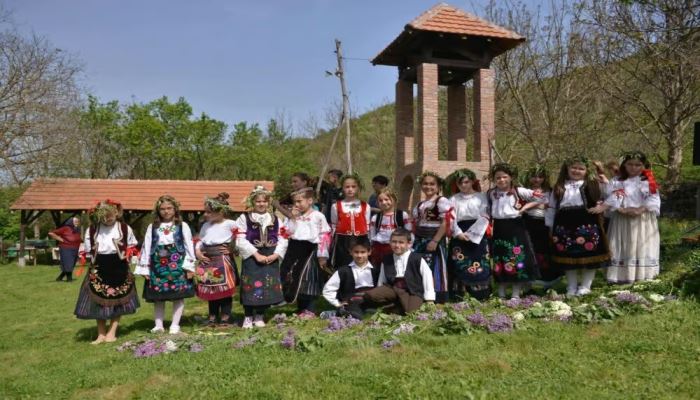Useful Info about Serbian Customs for Travelers

Serbia is a popular tourist destination thanks to its rich history, interesting culture, stunning natural landscapes, and a very hospitable attitude to foreigners. We recommend taking a look at the country’s customs regulations before you go to ensure seamless travel. Some tourists who fail to do so may face unpleasant surprises at the border, and you hardly want to be one of them.
If you want to discover Serbia in more detail, please visit the site that is devoted entirely to this beautiful Balkan state. We write about establishing companies, associations, and foundations, creating corporate or personal bank accounts with local banks, tax optimization, asset protection, investment (including investment in real estate), relocation and obtaining a residence permit, citizenship, and much more. You can also get in touch with our expert on Serbian matters (use the live chat during office hours) to get professional advice. We will help you set up a company, open an account, obtain a residence permit, and so on. Click on the link to talk to us!
Serbian Customs: Red and Green Corridor
Different kinds of travelers and goods go through two different channels called a red corridor and a green corridor.
If you cross the Serbian border with non-restricted items that are not subject to customs duties, you have to choose the green corridor. In this case, you will not need to undergo any additional baggage check, and no customs declaration is required to be filled. However, if any violations on your part are suspected, the customs authorities may require an extra check.
Here are the reasons to choose the red corridor:
- You have goods that are subject to mandatory declaration.
- You have goods whose quantity exceeds the limits set.
- You have restricted/prohibited goods.
Those who go through the red corridor need to complete a customs declaration and show it to the officer. They will need to pay VAT and a customs duty that amounts to 10%. That is, the total amount payable makes up 30% of the cost of goods you are carrying.
The goods that cost up to 3,000 euros are subject to a simplified procedure.
Currency Import to Serbia: Limits
As for the import/export of currency and securities, the rules set in Serbia are rather relaxed: you are not required to declare amounts that do not exceed 10,000 euros per traveler. That is, a family of three can carry 30,000 euros through the green corridor.
If the amount you are carrying exceeds the above limit, you will not only have to declare it but you will also be required to provide a document that proves the legal origin of funds, such as bank statements, currency exchanges, salary certificates, and so on. If you want to export the funds you have withdrawn from your personal bank account in Serbia, you are allowed to do so on the condition that you provide a relevant bank statement.
There are two groups that can export the amounts exceeding 10,000 euros:
- Foreign nationals along with their family members that live abroad (including consular/diplomatic representatives of foreign countries in Serbia).
- Nationals of Serbia who have been residing abroad for more than one year on the basis of a work visa or a residence permit.
Non-residents who want to export more than 10,000 euros from Serbia are required to have the following documents:
- An import certificate issued by the customs service to prove that the currency was brought to Serbia when they crossed the border.
- A certificate issued by a Serbian bank to prove that the money was withdrawn from the bank account.
- A document issued by an exchange office to prove that the money was obtained by exchanging the Serbian currency (dinars) they withdrew from the card into a foreign currency.
If you provide one of these documents, you will be allowed to export the amount specified in it.
A resident of Serbia who wishes to take more than 10,000 euros out of the country is required to show official proof of emigration to the border control officer (a certificate of deregistration in Serbia and an emigration visa issued by the Ministry of Internal Affairs).
Money on Plastic Cards
Fortunately, the plastic cards are under no restrictions whatsoever: you can have as much money on the cards you bring to Serbia as you want under the current customs rules and regulations.
What If I Don’t Declare the Money?
If you fail to declare an amount that exceeds 10,000 euros, the non-declared amount will be temporarily seized under the Law on Foreign Currency Operations, and a special report will be made in this case. Two days after that, the seized amount will be transferred to an account with the National Bank of Serbia, and further investigations will be conducted under the local laws.
Import/Export of Goods
If you cross the Serbian border with your personal belongings, you are not required to pay any import taxes. Let’s look at the items you can import without extra fees payable:
- Medicines/medical equipment that you need to personally use
- Strong alcoholic drinks or wine (up to 1 liter)
- Car fuel (full tank in your car)
- Tobacco products: up to 10 cigars, 50 cigarettes, 25 cigarillos (whose weight is no more than 3 grams), or pure tobacco (50 grams)
- General fiction or scientific literature
- Perfume (up to 25 ml) or eau de toilette (up to 50 ml)
If you want to import items in excess of these values, you will be required to pay 10% of the item’s cost.
Prohibited/Restricted Items
The list of prohibited items that you cannot bring to Serbia includes the following:
- Explosives
- Poisons
- Drugs
- Any dangerous substances
- Certain types of weapons
Trying to cross the border with these items may result in fines or even criminal responsibility.
If you take cosmetics, medicines, food products, plants, or animals with you, they will undergo a meticulous check by health authorities and veterinarians, and you will have to provide all the required documents and permits.
Exporting historical/cultural items from Serbia to another country is allowed on the basis of a special permit issued by the local Ministry of Foreign Economic Relations.
Conclusion
Thinking of relocating to Serbia, starting a business, or opening an account here? Or maybe you would like to invest in Serbian real estate to get passive income? Please follow the above link to discuss all these opportunities with our specialists and receive professional advice. And welcome to Serbia!

